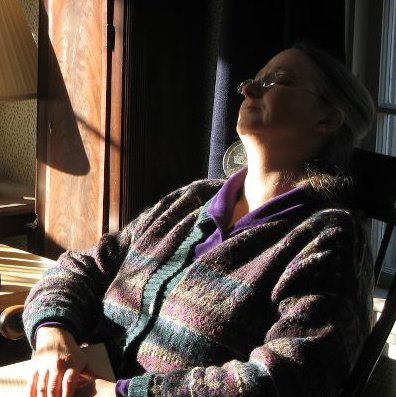(3rd of 3 Ruminations on Class Issues)
The Spiritual Journey so far:
Prologue I: Peter In Kenya
Prologue II: A Liberal Christian With Balls
Part I: A Refugee Looks Back
Part II: Leaving Home
Part III: Who Am I?
Part IV: Learning About Race and Gender
Part V: Watching My Students Drown
Part VI: Animal Bones
Where I first consciously bumped up against class issues was in one of my first teaching jobs, when I was in special education. One class I taught was 20th Century History, to a group of five high school students with issues ranging from severe dyslexia to mild or moderate retardation. Three of them were overtly racist, and it was clear from day one that a lot of high-falutin’ liberal political theory was not going to talk them out of that. Like any good public school teacher, I challenged racist language whenever they used it. But how much actually got through? I remember trying to explain to a kid that being proud of his Italian-American heritage was great, but saying “Whites rule!” was not acceptable. Waaayyyyy to subtle a distinction for him. I think the closest I came to actually getting through to one of them was once when a kid said “I hate black people,” and I told him that if I’d been his foreman on a construction site, I’d probably fire him for that, because there your job is to get the house built and you’ve got to be able to get along with your coworkers to get the job done.
As I got to know these kids (the first and only time I’ve ever tried to make a real connection with white supremacists) I learned that one of them had family who were active in the KKK, and that as a young child, he’d witnessed at least one racially motivated murder committed by a relative.
At their urging, I rented and watched “American History X,” and found myself realizing that like the way that the history of gays and lesbians is largely invisible, so is the history of white supremacists. They’re always the bad guys in movies, portrayed as faceless, white-hooded monsters with no humanity. My kids loved “American History X” because, although the film carries an anti-racist message and makes no excuses for violence, it does show white racists—people like them—as actual characters with meaningful conflicts and realistic motivations.
As I got to know my sped kids as individuals, I also got to know the special education system and began to see the ways that it was profoundly letting them down. One in particular stays with me. Billy (not his real name) was a kid of normal or close-to-normal intelligence, but with profound dyslexia. His dream in life was to become an HVAC technician like his godfather. The local voc-tech school wouldn’t take him because of his reading issues, so we were doing the best we could to give him shop classes and work-study along with reading instruction at the regular high school.
What Billy needed was an internship, or an apprenticeship—some kind of program where the core of it was on-the-job training under a master electrician, but with reading and a little bit of history and science and math tucked in around the edges. We gave him work-study credit to shadow the school custodian doing maintenance, and he loved it. We arranged an internship at a local auto mechanic, which he didn’t like as much because instead of showing him how to do oil changes, they had him cleaning dog poop from the lot. I went and toured the vocational school and came away agreeing that, yes, he’d flounder there. I visited one of the commercial tech schools that kids go to after graduating, got them to donate a copy of their training manual, and gave it to him. He carried it around like a talisman for a while, but when I asked the reading specialist about it, she shook her head sadly and said he really couldn’t read it at all.
And the answer from administrators and education experts was always the same: Everybody needs college skills. Even being an auto mechanic these days means using a computer and reading technical material, so every program of study is going to be run as if it were college prep. Even the vocational schools are striving for “academic rigor.” So the only answer for Billy was to buckle down and study his math and history and English, and put his dreams of working with his hands on hold until he proved himself academically.
Another of my sped kids, Larry (again, not his real name) came back to say hi the year after he graduated. He was in automotive school now, learning about alternators and generators and trying to figure out Ohm’s law. I’d had this kid in a physical science class a couple of years earlier, and we’d covered electricity, and nobody wanted to learn about Ohm’s law then. If I’d had half an hour now, I could have pulled him aside and gotten him up to speed, but the clock was ticking, the bell was ringing, and I was off to try to teach another freshman class that hadn’t yet figured out why they should care.
And the only answer we had for why they should care was that everybody needs college skills, even for menial jobs, so we should all pretend we’re college-bound. As an individual teacher, I felt as powerless to change the tide of education reform as a cork bobbing along in a riptide, swept out to sea and watching my kids drown.
The gift I had for these kids was crap, and they knew it. I knew what they wanted and needed, and I didn’t have it to give. So I left. I have a different job now at a different school, teaching a subject I can actually get kids excited about.
And it occurs to me sometimes that by teaching Advanced Placement science to bright, motivated kids in a relatively well-to-do community, I have abandoned that vision of saving the world that was so central to me in my days in the Farm Co-op. But it’s what I can do, and it’s not unimportant. It’s being effective in my own small piece of the world, which is what adults do, rather than saving the whole world in one grand gesture, which is what adolescents dream of doing.
Photos: Teaching history to white supremacists, 2002
Anonymous message left on my whiteboard by an alumna, 2011

















